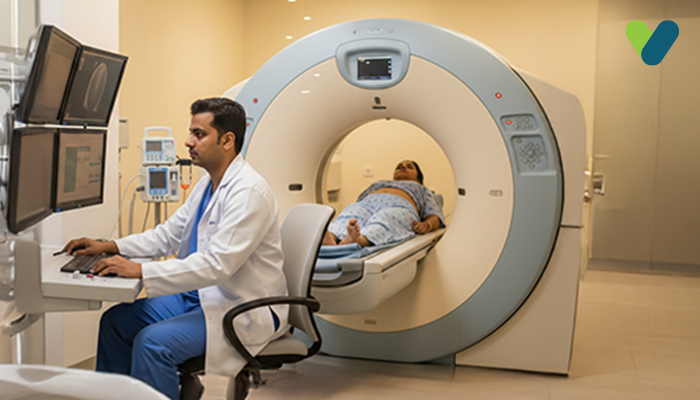The phenolsulfonphthalein (PSP) test was introduced in 1911 as a means to estimate the total blood flow passing through the kidneys. However, after approximately a century of use, this test has become outdated and is not used very frequently.
But before knowing more about the PSP test, it is good to understand the importance of the kidneys and what they do.
Kidneys: Basics
The kidneys are essential organs that play a crucial role in maintaining overall health by performing several vital functions.
When the kidneys are not functioning properly, harmful toxins and excess fluids can accumulate in the body, leading to the symptoms associated with kidney failure. These symptoms may include elevated blood pressure, fatigue or lack of energy, persistent headaches, swelling in the face and ankles, fluid retention, and lower back pain. (4)
This page aims to provide an overview of the PSP test, including its purpose, procedure, interpretation, and potential side effects.
Phenolsulfonphthalein Test (PSP Test)
The phenolsulfonphthalein test is a diagnostic tool to aid in the identification of kidney problems or diseases. Its primary purpose is to assess the efficiency of kidney function.
By measuring the rate at which the kidneys excrete this substance phenolsulfonphthalein, healthcare professionals can gain insights into the overall kidney function and detect any abnormalities or impairments. For instance, PSP excretion is reduced in the majority of chronic renal disorders and may be elevated in some liver conditions.
How to prepare for a PSP test?
- Individuals should inform their healthcare provider about any history of unusual or allergic reactions to phenolsulfonphthalein or other medications. It is also important to disclose any known allergies to foods, dyes, preservatives, or animals.
- Individuals should notify their healthcare professionals about all prescription and non-prescription medications they are taking. Certain medications may interact with phenolsulfonphthalein, and adjustments to the dose or other precautions may be necessary.
- Individuals should inform their doctor about any other medical conditions they have, particularly liver disease, gout, multiple myeloma, severe kidney disease, or heart or blood vessel disease. These conditions can impact the body’s ability to eliminate phenolsulfonphthalein and may affect the test results.
How is the PSP Test Performed?
The PSP test is performed under the supervision of medical professionals.
It is of the utmost importance that the individual follows the instructions to ensure a successful test. Properly emptying the bladder and collecting all the urine is crucial, as any leftover or lost urine can significantly affect the accuracy of the test results.
Additionally, it is recommended that this test only be used under the supervision and guidance of a doctor. Their expertise and supervision are necessary throughout the test process to ensure safety and accurate results.
How are the PSP test results interpreted?
The rate of PSP excretion helps evaluate the efficiency of the kidneys' excretory function. Normally, around 80% of the PSP is secreted by the kidneys, while the remaining 20% is processed by the liver.
The recovery value of PSP from the urine at the 15-minute mark after injection typically ranges between 25% and 35%. This holds the most diagnostic significance because, even if a kidney is damaged, it may still be able to eliminate the PSP from the bloodstream over a longer period of time.
Possible side effects of the PSP test
The PSP test is generally considered safe and well-tolerated. However, like any medical procedure, there can be potential side effects or risks associated with the test. It is important to note that these side effects are generally rare and occur in a small percentage of individuals. If phenolsulfonphthalein comes into contact, it can cause irritation in the respiratory tract, eyes, and skin.
Takeaway
The phenolsulfonphthalein excretion test, or PSP test, plays a crucial role in diagnosing renal disorders by assessing the efficiency of renal excretory function. By measuring the rate at which PSP is excreted by the kidneys, this test provides valuable insights into the organ's health and functionality. The results of the test can help healthcare professionals make informed decisions regarding patient care and treatment plans. If you have any questions or concerns about the PSP test or its results, it is important to discuss them with your healthcare provider for further clarification and guidance.

